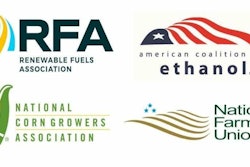
A wide-ranging executive order that President Biden signed Friday seeks to address consolidation throughout the economy and includes a special focus on actions the Department of Agriculture could take to address the meat industry and antitrust enforcement.
Theexecutive orderwas directed at several federal agencies, including the Surface Transportation Board (STB) andU.S. Department of Agriculture (USDA).
Biden said the order prioritizes “aggressive enforcement of anti-trust laws” and includes 72 specific actions for federal agencies “to help restore competition.” During his remarks he noted the order includes directives to ban or limit non-compete agreements, lower prescription drug prices, allow hearing aids to be sold over-the-counter, and make internet access more affordable.
Referring to consolidation in the agriculture industry, the preamble of the order says: “Farmers are squeezed between concentrated market power in the agricultural input industries — seed, fertilizer, feed, and equipment suppliers — and concentrated market power in the channels for selling agricultural products. As a result, farmers’ share of the value of their agricultural products has decreased, and poultry farmers, hog farmers, cattle ranchers, and other agricultural workers struggle to retain autonomy and to make sustainable returns.”
While the actions outlined in the order are directed at agencies, they do not carry the force of law and, in most instances, each agency would need to follow standard rulemaking procedures to implement these actions.
The following outline describes theorder’s directivesrelated to the STB, the Federal Maritime Commission (FMC) and the USDA:
The order directs the STBto resume consideration of its competitive switching proposal “if the Chair determines such rulemaking to be in the public interest or necessary to provide competitive rail service.” Competitive switching would allow shippers served by a single railroad to request bids from a nearby competing railroad.
It also directs STB to consider rulemakings pertaining to any other relevant matter of competitive access, including bottleneck rates and interchange commitments.
The order directs the FMCto “vigorously enforce” the prohibition of unjust and unreasonable practices in the context of detention and demurrage pursuant to the Shipping Act. FMC also is expected to request from the National Shipper Advisory Committee recommendations for improving detention and demurrage practices, and to consider further rulemaking to improve detention and demurrage practices and enforcement of related Shipping Act prohibitions.
The EO directs the USDAto consider initiating rulemakings under the Packers and Stockyards Act that, including:
- Identify recurrent practices in the livestock, meat, and poultry industries that are “unfair, unjustly discriminatory, or deceptive and therefore violate the Packers and Stockyards Act"
- Prohibit practices related to grower ranking systems “in which the poultry companies, contractors, or dealers exercise extraordinary control over numerous inputs that determine the amount farmers are paid and require farmers to assume the risk of factors outside their control,”
- Update definitions for undue or unreasonable preferences, advantages, prejudices, or disadvantages under the Packers and Stockyards Act
- Adopt appropriate anti-retaliation protections, “so that farmers may assert their rights without fear of retribution.”
USDA also is expected to consider initiating a rulemaking to define rules for labeling meat products as "Product of USA.”
Finally, USDA is expected to complete reports assessing competition conditions of and making plans to improve:
Opportunities for farmers to access markets and receive a fair return for their products through the following:
- Creation or expansion of useful information for farmers, such as model contracts, to lower transaction costs and help farmers negotiate fair deals
- Measures to encourage improvements in transparency and standards so that consumers may choose to purchase products that support fair treatment of farmers and agricultural workers and sustainable agricultural practices
- Measures to enhance price discovery, increase transparency, and improve the functioning of the cattle and other livestock markets
- Enhanced tools, including any new legislative authorities needed, to protect whistleblowers, monitor agricultural markets, and enforce relevant laws
- Any investments or other support that could bolster competition within highly concentrated agricultural market
- Any other means that the Secretary of Agriculture deems appropriate
- Access to retail markets by local and regional food enterprises
- 它的知识产权制度”not unnecessarily reduce competition in seed and other input markets”
The American Farm Bureau Federation (AFBF) notes the President's effort to address several pressing issues facing America’s farmers and ranchers comes at a time when many in the farm supply chain are frustrated.
"Growing concern about livestock market fairness is accelerated by the continued rise in grocery store meat prices while ranchers struggle to break even on the cattle they raise and poultry farmers being locked into agreements with very little recourse if they’re underpaid," says Zippy Duvall, president of AFBF. "It’s time to get to the bottom of what’s driving these imbalances.
“农民越来越多地依赖于最新的技术y as they grow healthy, affordable food," Duvall continues. "Business purchases — from robotic milkers to high-tech combines — require a substantial investment, and when those tools break down farmers need to get back up and running quickly. Limiting who can work on a piece of machinery drives up costs and increases down-time. Ensuring farmers have the ability to perform cost-effective repairs on their own equipment will keep America’s farms running and financially sustainable.”





















